
It’s been two decades since I returned from a nine-month sabbatical in Australia and settled in London and founded Pink Therapy. While away, Charles Neal and I worked on co-editing the last two volumes in the Pink Therapy Trilogy and I unexpectedly did some consultancy around sex and disability. Few people know this, but in the same year as the first Pink Therapy book was published, I had another arrive on the bookshelves. The Sexual Politics of Disability: untold desires was written mainly by my dear friend Tom Shakespeare with some assistance (and a fair amount of interviewing undertaken by Kath Gillespie-Sells and myself). Sydney was a much more progressive city in terms of support for disabled people to access sexual services than the UK and my ideas for Sex and Relationship Facilitation found some willing ears in particular amongst two passionate sex workers, Rachel Wotton and Saul Isbister and helped give birth to an incredible project called Touching Base. I also inspired Belinda Mason a talented photographer to create a beautiful art project Intimate Encounters.
So it was a challenge to return to a cold grey April in London in 1999 with no job and no home and just the support of my partner at the time and some wonderful friends and colleagues. Gail Simon – co-founder of The Pink Practice allowed me to rent their therapy space for a day a week and I slowly rebuilt a private practice, and when the two new books were published, I invited each of the chapter authors to present their ideas in a seminar and so was born Pink Therapy Seminars. We offered 20 separate sessions on a Friday lunchtime and slowly things grew from there.
Before long, I’d expanded my practice of renting from Gail, to a lease of my own in the same building and when that building was sold, I decided to put Pink Therapy on the street famous for private health care and moved us to Harley Street! It had been the site of Psychiatrists and Psychotherapists having tried to cure us for decades, and so it seemed appropriate to show up and reclaim the space! I also invited some colleagues (mostly London based contributors to the books) to formally become Clinical Associates (link shows the current team) a network of highly experienced practitioners who could take referrals and collaborate on projects and with whom we could share in peer supervision and training. We’d been running workshops at the Resource for London centre in Holloway Road for several years, and these slowly grew a wider network of LGBT friendly therapists who were eager for some specialist training and to break some of the isolation of working with our communities.
After three years in Harley Street and largely due to constantly rising rents and the desire to have our own training room, I moved us into a large flat in Soho (above a popular gay bar) where we stayed for four years. It was a wonderful period when people attending our training sessions could then go out and dine in gay restaurants and drink in gay pubs after class. We developed an extensive programme of over 50 training workshops and events, and we began the first one-year Certificate in Sexual Minority Therapy, later it developed into a Diploma in Gender and Sexual Minority Therapy. It was during this period that Olivier Cormier-Otaño who had graduated from our first Certificate course, came to work with me helping me with admin support. It was his idea to hold an annual International Summer School and to have some of our papers translated into other languages by volunteers to help spread our ideas further. You can read some first person accounts of how life-changing these Summer Schools were for the therapists who attended them.
Four years later, we moved to rent rooms at North London Group Therapy in Manor Gardens and continued to deliver a large programme of face-to-face training workshops and courses. In 2015 I decided to move the training courses online as a way of being able to reach a much wider audience. Lots of people had given feedback that they wanted to do some training with us, but getting to London was expensive and virtually impossible for those who worked abroad. So I developed the first online Diploma run over two years with sixteen modules and case discussion groups and an incredible residential intensive. In our first cohort, we had two psychologists from Australia, a psychologist from Germany, a social worker from Malta, a counsellor from the West Coast of Ireland and several therapists from across the UK. I also was able to recruit an incredible international faculty of highly experienced therapists.
Last year, I made a decision to split the two-year Diploma into a more manageable one-year Foundation Certificate with the option of a second year for those who want to specialise in working with Gender, Sexuality and Relationship Diverse people and we finally managed to get our individual self-study modules online on a brand new training website. These units are ideal for people unable to commit to an ongoing in-depth training or who just want to learn something about a specific subject area from our carefully curated knowledge base.
You can see the reach of Pink Therapy on this map – and I’m incredibly proud to have built such an international network.
It’s been a busy two decades, an absolute labour of love and I’m not entirely sure at times where I found the energy to keep going. I’m largely working alone. My current PA and course administrator Anya Stang is now based in Berlin and works part-time three-days a week and her unerring professionalism and tidy mind keeps me on track.
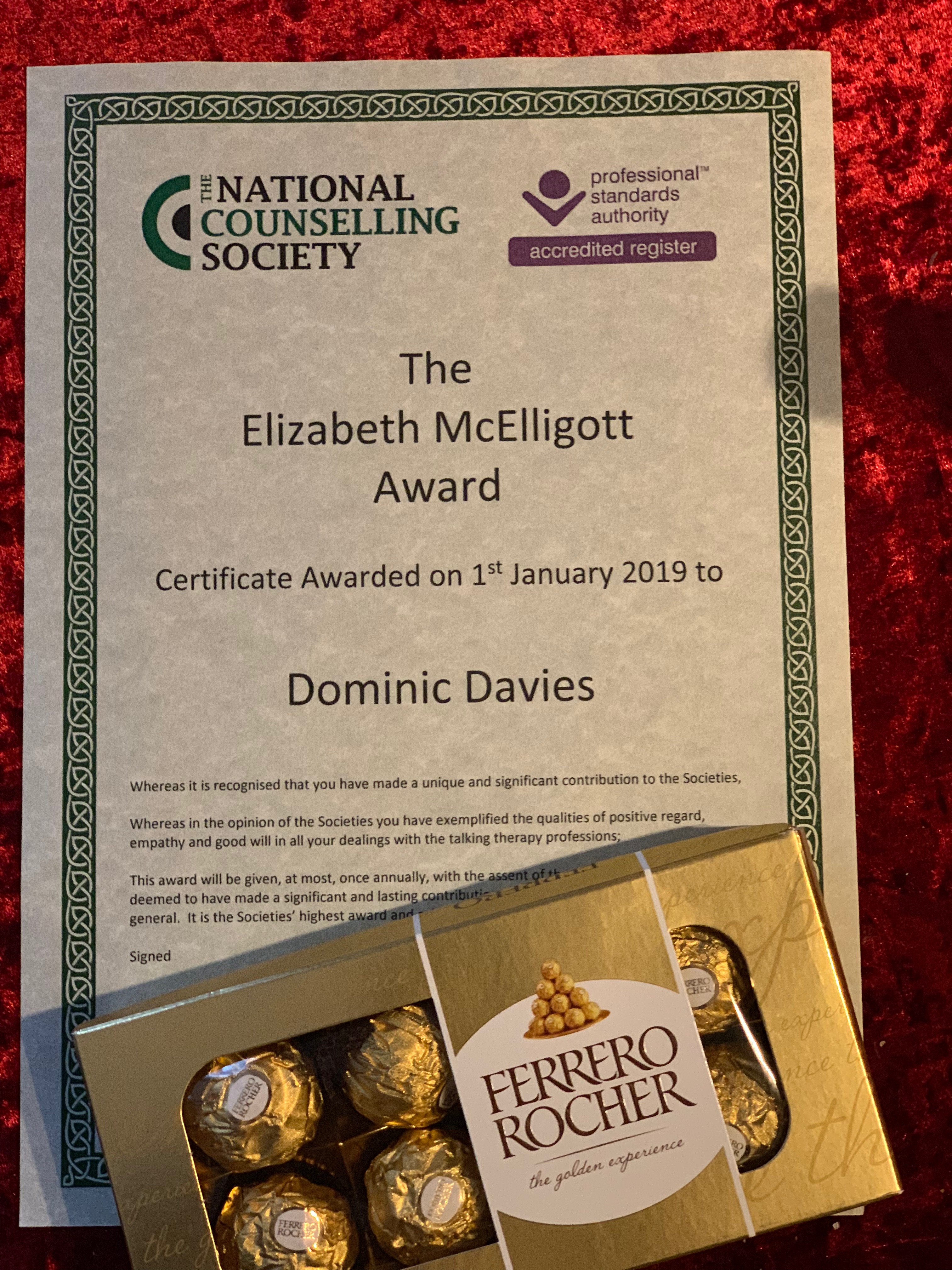
It’s been a wonderful to be recognised for my work over the years by different organisations. The British Association for Counselling and Psychotherapy made me a Fellow (I later renounced this and ended my membership due to utter frustration with them). The National Counselling Society also made me a Fellow, as well as their Ambassador for GSRD issues (and last December gave me the Elizabeth McElligot Award). Just recently, the National Council of Psychotherapists also decided to honour me by making me a Fellow!
Pink Therapy was shortlisted for the National Diversity Awards and the following year for the European Diversity Awards which as a fab chance to put on our best frocks!
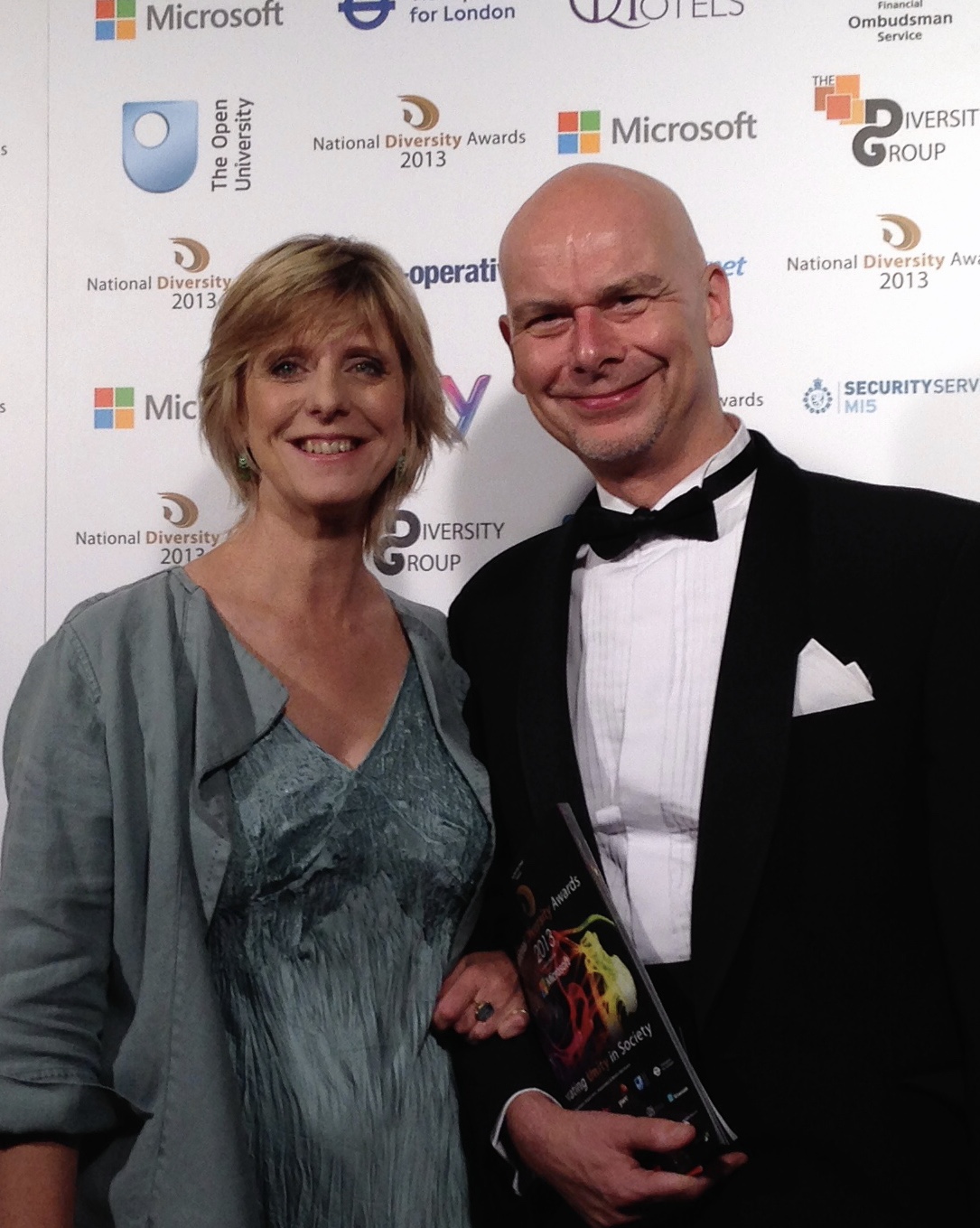
With Pamela Gawler-Wright at the NDA Awards in 2013 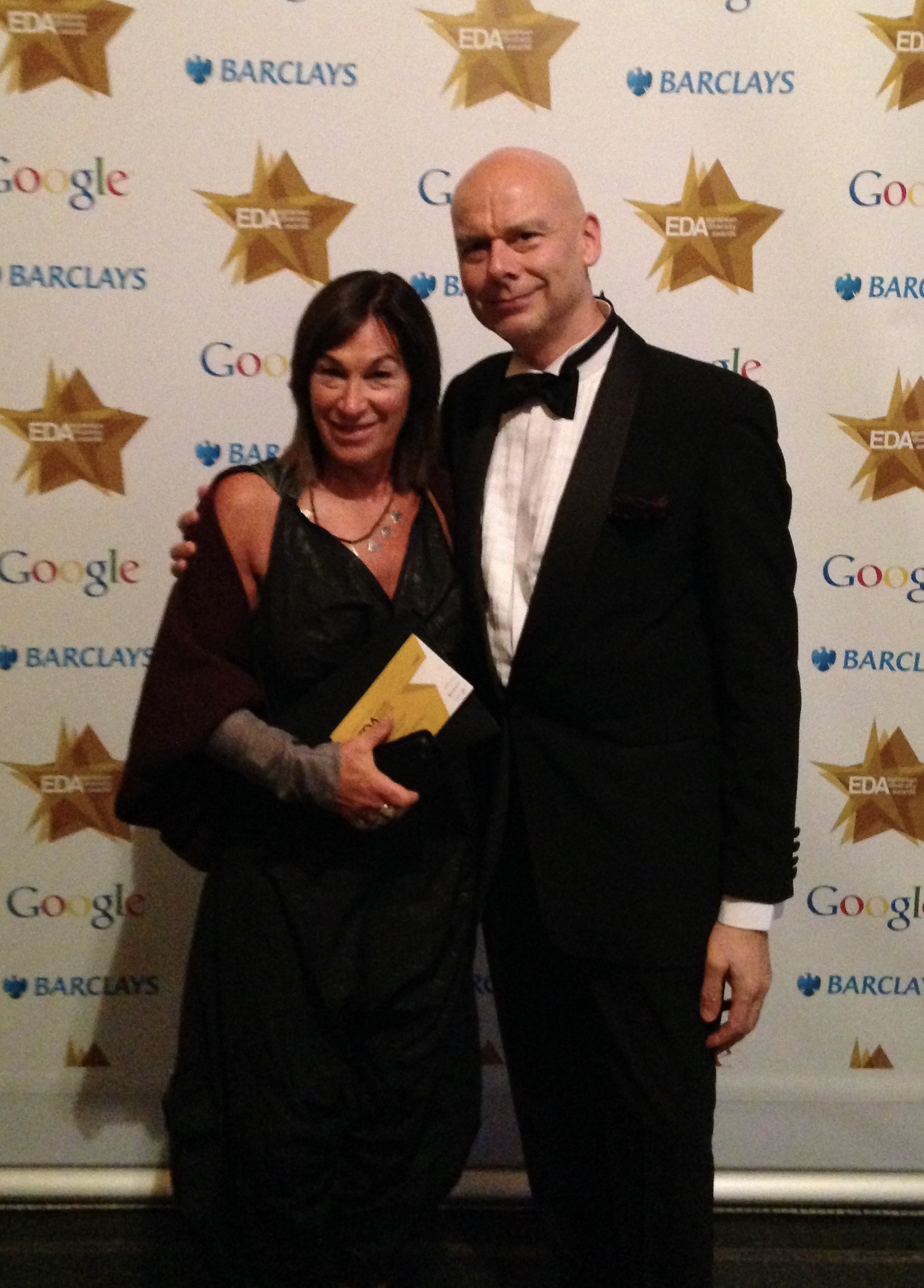
With Leah Davidson at the EDA in 2014

I made the Independent on Sunday’s top 100 list of the most influential LGBT people in Britain for two consecutive years and last year I was awarded the Lifetime Achievement award from the Sexual Freedom Awards. This last award is one I am most proud of as the award is so incredibly beautiful!
Dominic Davies
CEO and Founder – Pink Therapy, April 2019
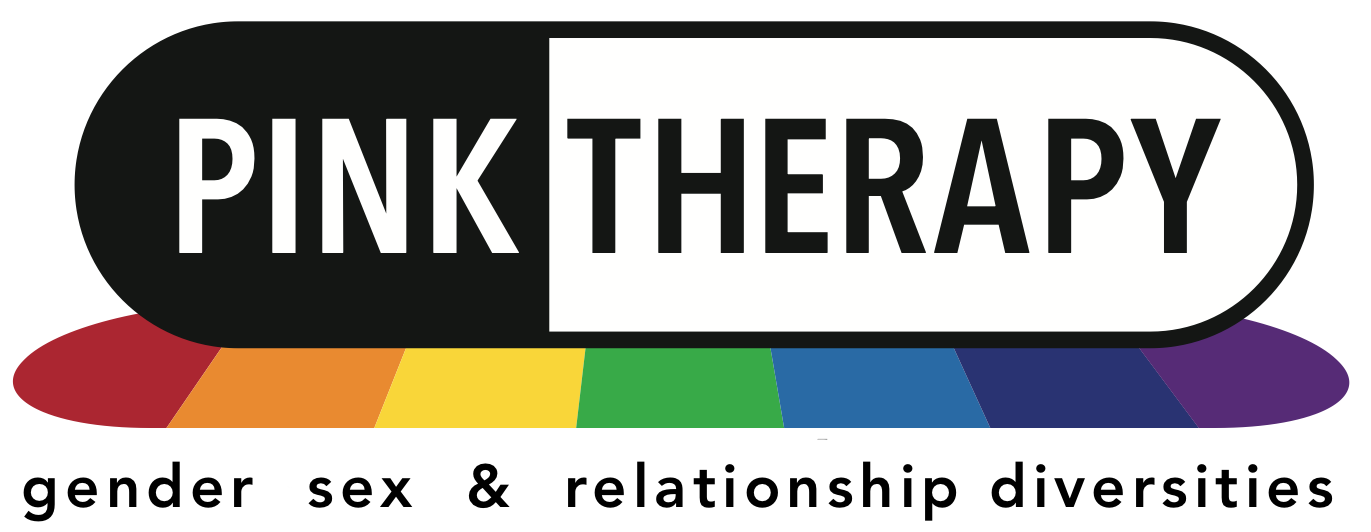
 to be who you are you’re likely to receive some forms of micro aggression.
to be who you are you’re likely to receive some forms of micro aggression.
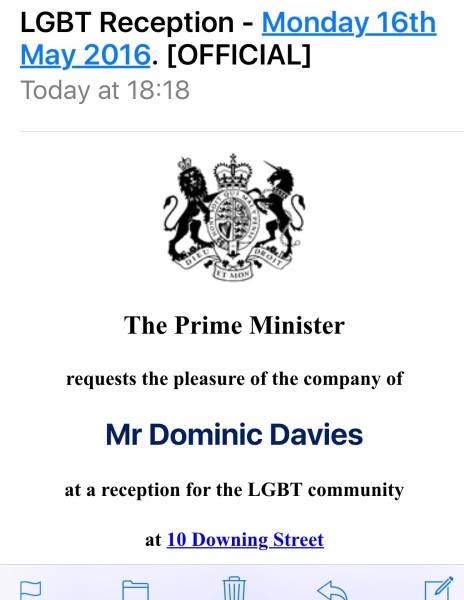
 I am grateful that to everyone who played a part in lobbying the Board with their views, research and concerns. I think this has been immensely helpful in helping the Board decide that these protections are needed.
I am grateful that to everyone who played a part in lobbying the Board with their views, research and concerns. I think this has been immensely helpful in helping the Board decide that these protections are needed.







